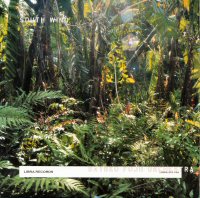
Satoko Fujii Orchestra in original compositions, an amazing lineup of mostly New York players including Steven Bersteain, Herb Robertson, Briggan Krause, etc.
In Stock
Quantity in Basket: None
Log In to use our Wish List
Shipping Weight: 3.00 units
EU & UK Customers:
Discogs.com can handle your VAT payments
So please order through Discogs
Sample The Album:
Oscar Noriega-alto saxophone, bass clarinet
Briggan Krauss-alto saxophone, clarinet
Tony Malaby-tenor saxophone, soprano saxophone
David Castiglione-tenor saxophone, soprano saxophone, bamboo flute
Andy Laster-baritone saxophone, clarinet
Herb Robertson-trumpet, cornet, soplano hunting horn
Steven Bernstein
Dave Ballou
Natsuki Tamura-trumpet
Joe Fiedler-trombone
Curtis Hasselbring-trombone
Joey Sellers-trombone
Satoko Fujii-piano
Yuko Yamaoka-piano
Stomu Takeishi-Bass
Aaron Alexander-Drums
Click an artist name above to see in-stock items for that artist.
UPC: 4562169331044
Label: Libra
Catalog ID: 215-104
Squidco Product Code: 4174
Format: CD
Condition: New
Released: 2004
Country: Japan
Packaging: Cardstock Sleeve
"Composer, arranger, and pianist Satoko Fujii leads her first big band on South Wind, a set that is as shocking as it is delightful. The reasons for the shock are the series of tonal and improvisational acrobatics she puts her 15-piece orchestra through and the montage technique she approaches harmony with. Her predecessors are clear -- many of them (Joe Maneri, Jimmy Giuffre, Paul Bley, and George Russell) were her teachers at the New England Conservatory; but her method is her own. Creating backdrops from available sources -- brass, winds, reeds and rhythm -- is the backbone of her style. Not a solid surface for soloists to fly from and return to, but solid as a coloring tonal device on which to erect particular structures of harmonic and intervalic counterpoint. Using only her own and her husband's compositions (the trumpeter Natsuki Tamura), she can create a palette from which the lines between improvisation and written script blur, and then fade altogether. By equating microtonal strategies she attains a different approach to harmonic convergence and orchestral consonance -- though the sound to the listener may seem dissonant. The territory where the entire album turns from and heads to is the four-part suite "Seasons." Fujii uses the elementals of the orchestra (four winds there, a brass instrument and the piano here) to achieve fluidity by which other strands, sequenced according to mood, mode, and rhythm, enter the dialogue and fill in the scene. By the time the entire band is in there pitching, the entire body of music has shifted from one space to another -- a tonal world where scalar approaches to solos don't work, but inverted harmonic sequences do, along with their resultant pitches. And yes, it swings in its own way, but the swing is the thing and it's definite; it's not just a bunch of improvisers blowing each other out of the chart, but whistling themselves -- and their section members -- through them. The texts are adventurous but playful, and austere yet lush in others. This is first-rate big band music. Based on her two solo outings and her duet with Paul Bley, there is no limit to Fujii's abilities as a composer, pianist, or bandleader. Bravo."-Thom Jurek, All Music
Artist Biographies
• Show Bio for Oscar Noriega "Multi-instrumentalist and composer, Oscar lives in Brooklyn since 1992. He has worked with Lee Konitz, Anthony Braxton, Gerry Hemingway, Dewey Redman and Paul Motion. He is currently performing with Tim Berne's Snakeoil, Endangered Blood (Chris Speed, Jim Black, Trevor Dunn) and colead with Jacob Garchik, the Mexico-inspired Banda De Los Muertos. He plays alto saxophone, clarinet, bass clarinet and drums." ^ Hide Bio for Oscar Noriega • Show Bio for Briggan Krauss "Saxophonist Briggan Krauss has been an internationally recognized key player in New York City's downtown and creative music scene for more than twenty years. He connects the extreme edges of technique with the unexplored tonal possibilities of the instrument while making his work as much about shape as it is about his unique signature sound. He has released several critically acclaimed recordings as a leader and has appeared on over fifty other recordings as a sideman. He has worked with a diverse range of artists including John Zorn, Bill Frisell, Steven Bernstein, Wayne Horvitz, Levon Helm, Skerik, Eyvind Kang, Robin Holcomb, Norah Jones, Medeski Martin and Wood, Hal Willner, Skuli Sverrisson, Jim Black, Ikue Mori, Joey Baron, Kato Hideki, Satoko Fuji, Dave Harrington, The New York Composer's Orchestra, Elysian Fields, Iron & Wine, Rufus Wainwright, Sarah Manning, Trey Anastasio, Joan Wasser, Jessie Harris, Beth Fleenor, Lou Reed, Marc Ribot, Antony, and U2. Briggan's voice has been a part of Steven Bernstein's iconic quartet Sexmob from its inception twenty years ago. Sexmob earned a Grammy Award nomination for their 2006 recording titled Sexotica and Briggan also recorded with guitarist Bill Frisell on his Grammy Award winning 2007 album Unspeakable. In addition to his work as a saxophonist and composer, Briggan plays guitar in several projects including his String and Reed Quartet. He also works in the areas of sound art, electronic music and interdisciplinary performance. He is currently a professor in the Performance and Interactive Media Arts [PIMA] and Sonic Arts MFA programs at Brooklyn College. " ^ Hide Bio for Briggan Krauss • Show Bio for Tony Malaby "Tony Malaby (born January 12, 1964 in Tucson, Arizona) is a jazz tenor saxophonist. Malaby moved to New York City in 1995 and has played with several notable jazz groups, including Charlie Haden's Liberation Music Orchestra, Paul Motian's Electric Bebop Band, Mark Helias's Open Loose, Fred Hersch's Trio + 2 and Walt Whitman project, and bands led by Mario Pavone, Chris Lightcap, Bobby Previte, Tom Varner, Marty Ehrlich, Angelica Sanchez, Mark Dresser, and Kenny Wheeler. Other collaborators have included Tom Rainey, Christian Lillinger, Ben Monder, Eivind Opsvik, Nasheet Waits, and Michael Formanek. His first album as a co-leader was Cosas with Joey Sellers." ^ Hide Bio for Tony Malaby • Show Bio for Andy Laster "Composer and multireedist Andy Laster grew up on the south shore of Long Island. He studied short fiction writing at the University of Michigan and jazz at Seattle's Cornish Institute before moving to New York City in 1985. His first recording, "Hippo Stomp," appeared on the Sound Aspects label in 1989. This album was followed by two more Sound Aspects releases, "Twirler" and the first eponymously named CD by Hydra, one of Laster's key ongoing projects in the 1990s. "Interpretations of Lessness," based on a poem by Samuel Beckett, was released in 1997 and was named one of the year's top ten jazz recordings by Billboard Magazine. "Window Silver Bright" was released in 2002, with an expanded version of his Lessness ensemble. While leading these two groups, Laster contributed to collaborative ensembles Orange Then Blue and New and Used, as well as performed in Erik Friedlander's Topaz; the Julius Hemphill Sextet; the Pink Noise Saxophone Quartet; Bobby Previte's Weather Clear, Track Fast; and Matt Darriau's Ballin' the Jack. He has also performed with Mark Helias, Hank Roberts' Birds of Prey, Lyle Lovett and his Large Band, Marty Ehrlich, Dave Douglas, Elliot Sharp, Roy Nathanson, Satoko Fujii Orchestra, and Brian Carpenter's Ghost Train Orchestra. Laster's chamber music has been premiered at New York City venues including Advent Lutheran Church, the Cornelia Street Cafe, and Roulette. He has been awarded residencies at the Blue Mountain Center and the Djerassi Resident Artists Program. He wrote incidental music for the play "Cast a Spell" by Traci Parks, which was performed at HERE Arts Center. In 2010, his piece Concrete Floor and Sailfish was selected as part of the American Composer Forum, Philadelphia Chapter, New Voices program and was premiered by Argento Chamber Ensemble. He has also received grants from the American Music Center, the Mary Flagler Cary Charitable Trust, and Meet the Composer." ^ Hide Bio for Andy Laster • Show Bio for Herb Robertson "Clarence "Herb" Robertson (born February 21, 1951) is a jazz trumpeter and flugelhornist. He was born in New Jersey and attended the Berklee School of Music. He has recorded five solo albums for the JMT record label and also worked as a sideman for Tim Berne, Anthony Davis, Bobby Previte, David Sanborn, George Gruntz, Bill Frisell and Paul Motian, among others." ^ Hide Bio for Herb Robertson • Show Bio for Natsuki Tamura "Japanese trumpeter and composer Natsuki Tamura is internationally recognized for a unique musical vocabulary that blends extended techniques with jazz lyricism. This unpredictable virtuoso's seemingly limitless creativity led François Couture in All Music Guide to declare that "... we can officially say there are two Natsuki Tamuras: The one playing angular jazz-rock or ferocious free improv... and the one writing simple melodies of stunning beauty... How the two of them live in the same body and breathe through the same trumpet might remain a mystery." Born on July 26, 1951, in Otsu, Shiga, Japan, Tamura first picked up the trumpet while performing in his junior high brass band. He began his professional music career after he graduated from high school, playing in numerous bands including the World Sharps Orchestra, Consolation, Skyliners Orchestra, New Herd Orchestra, Music Magic Orchestra, and the Satoko Fujii Ensemble, as well as in his own ensemble. He was the trumpeter for numerous national television shows in Japan from 1973-1982, including The Best Ten, Music Fair, Kirameku Rhythm and many others. In 1986, he came to the United States to study at Berklee College of Music. He then returned to his native Japan to perform and teach at the Yamaha Popular Music School and at private trumpet studios in Tokyo and Saitama, before coming back to the US to study at New England Conservatory. He made his debut recording as a leader in 1992 on Tobifudo. In 1997 he released the duo album How Many? with pianist Satoko Fujii, who is also his wife. It marked the beginning of an artistic collaboration that continues up to the present. The duo has made a total of five CDs over the years, including 2012's Muku. "Muku contains some truly stunning, spine-tingling music...its sheer beauty and elegance is what lingers most," wrote Dave Wayne in All About Jazz. "Fujii's orchestral technique, clear chromatic lines and "prepared piano" devices contrast effectively with Tamura's arsenal of extended techniques which he executes with a warm, vocalized tone throughout the trumpet's full range," Ted Panken said in his four-star DownBeat review. Tamura's collaborations with Fujii reveal an intense musical empathy, and have garnered wide popular and critical acclaim. Jim Santella in All About Jazz described their synergy well in his glowing review of the couple's 2006 Not Two disc, In Krakow, In November: "... the creative couple forcefully demonstrates what can happen when you let your musical ideas run free... Similarly, Tamura's mournful trumpet can fly high or low in search of his next surprise. Oftentimes, they both issue plaintive moans that sing like angels on high." Their sixth duet album is due out in 2017. In 1998, Tamura began recording his unaccompanied solo performances. The stunning solo trumpet debut release, A Song for Jyaki earned a Writers Choice 1998 in Coda magazine, and Andy Bartlett wrote in Coda, "A fabulous set of hiccuping leaps, drones and post-bop trumpet hi-jinx. Tamura goes from growling lows to fluid, free solo runs and echoes not only Don Cherry's slurring anti-virtuosic chops but also Kenny Wheeler's piercing highwire fullness." He followed it up in 2003 with KoKoKoKe, which Jon Davis described in Exposé as "Buddhist chants from an alien planet." Grego Applegate Edwards explains that on Tamura's most recent solo album, 2013's Dragon Nat, "he pares down to focus on simple unwinding melodic material, the sound of his trumpet as a sensuous thing, a periodicity. Taken as a whole it is a kind of environmental tone poem for the moment Natsuki is in now." 2003 was a breakout year for Tamura as a bandleader, with the release of Hada Hada, featuring his free jazz-avant rock quartet with Fujii on synthesizer. Peter Marsh of the BBC had this to say about the high voltage CD: "Imagine Don Cherry woke up one morning, found he'd joined an avant goth-rock band and was booked to score an Italian horror movie. It might be an unlikely scenario, but it goes some way to describing this magnificent sprawl of a record." The quartet's 2004 Quartet release Exit was deemed "...a brilliantly executed set with a neon glow," by Dan McClenaghan in All About Jazz. In 2005, Tamura made a 180-degree turn in his music with the debut of his all acoustic Gato Libre quartet. Focusing on the intersection of European folk music and sound abstraction, the quartet featured Fujii on accordion, Kazuhiko Tsumura on guitar, and Norikatsu Koreyasu on bass. The quartet's poetic, quietly surreal performances have been praised for their "surprisingly soft and lyrical beauty that at times borders on flat-out impressionism," by Rick Anderson in CD Hotlist. Dan McClenaghan in All About Jazz described their fourth CD, Shiro, as "intimate, something true to the simple beauty of the folk tradition...Tamura's career has largely been about dissolving musical boundaries. With Gato Libre and Shiro, the trumpeter extends his reach even deeper into the prettiest, most accessible of his endeavors." After the unexpected passing of Norikatsu in 2012, Tamura added trombonist Yasuko Kaneko to the group. The new configuration has toured Europe and Japan and released its debut recording, DuDu, in 2014. "DuDu follows the winning formula of its predecessors but, as with the other discs, eschews the formulaic. The result is another sublimely satisfying, elegant record that brims with raw excitement and a reflective nostalgia," writes Hrayr Attarian in All About Jazz. With the tragic death of guitarist Kazuhiko Tsumura, Gato Libre is now a trio. They will release a CD and LP in 2017. In 2010, Tamura debuted a new electric quartet, First Meeting, featuring Fujii, drummer Tatsuhisa Yamamoto and electric guitarist Kelly Churko. Their first release, Cut the Rope, is "is a noisy, free, impatient album, and ranks among Fujii and Tamura's most accomplished," according to Steve Greenlee in the Boston Globe. While fronting groups and recording as a leader, Tamura has also played an integral role in nearly all of Satoko Fujii's many projects. He is featured on all of the CDs by Satoko Fujii's various orchestras (NY, Tokyo, Nagoya, Kobe, and Berlin) and has contributed original compositions and arrangements to each of their 19 critically celebrated albums. In addition, he was a featured soloist in the Satoko Fujii Quartet, her avant-rock free jazz group that also included Tatsuya Yoshida of The Ruins. Of his work on the quartet's 2003 release Minerva, Mark Keresman wrote in JazzReview.com, "Natsuki Tamura's trumpet has some of the stark, melancholy lyricism of Miles, the bristling rage of late 60s Freddie Hubbard and a dollop of the extended techniques of Wadada Leo Smith and Lester Bowie." Tamura is a vital member of Fujii's Min-Yo Ensemble as well. "Tamura tempers his avant-garde antics with an innate lyricism," wrote Steve Smith of Time Out New York in his review of Fujin Raijin, the intimate acoustic quartet's debut CD. He's also been singled out for his contributions to Fujii's ma do ensemble. "With Tamura's brash and glowing lines, the band incorporates mesmeric ostinatos and thrusting opuses into the grand schema," Glenn Astarita wrote in Ejazznews about their first CD, Desert Ship. Collaborative groups also play an important role in Tamura's career. Most recently, Tamura joined Fujii and two French musicians, trumpeter Christian Pruvost and drummer Peter Orins, to form Kaze, which made their recording debut in 2011. In 2015, they released their third album, Uminari, which Jazz Magazine (France) called, "a compelling example of free jazz today. Compositions are perfectly scripted, with a well-oiled interaction and playing of beautiful power..." The collaborative trio Junk Box, which he co-founded in 2006 along with pianist Fujii and drummer John Hollenbeck, plays Fujii's "composed improvisations," graphic scores that take "ensemble dynamics to great creative heights," says Kevin Le Gendre in Jazzwise. Their music "is full of bluster and agitation that nonetheless retains moments of great melodic beauty, usually by way of concise, pertly pretty motifs that trumpeter Tamura plays in between bursts of withering roars that often dissolve into austere overtones." Their premiere CD, Fragment, appeared in 2006. As Daniel Spicer wrote of Fragment in JazzWise, "Tamura spits out gloriously rude Lester-Bowie-like snorts, lows like a herd of robotic cattle or makes like a wheezy howler monkey... Cool and clever." Glenn Astarita of All About Jazz declared it "Required listening." Along the way, there have been one-off cooperative groups and sideman appearances for Tamura as well. In the Tank, an ad hoc quartet with Fujii and electric guitarists Takayuki Kato and Elliott Sharp, is a "triumphant electro-acoustic adventure" according to Daniel Spicer of Jazzwise. "Think AMM meets blues guitar meets 1970s Miles Davis and you get some idea of the disc's flavor: a slow-moving panorama for the ears, where sounds are systematically added, repeated, refined, and replaced in turn," wrote Nate Dorward in Cadence. Tamura and Fujii were one of two piano/trumpet duos featured on the Double Duo Crossword Puzzle CD, a live recording with Dutch trumpeter Angelo Verploegen and pianist Misha Mengelberg. Tamura has also toured and recorded with saxophonist Larry Ochs' Sax and Drumming Core, and appeared on albums by drummer Jimmy Weinstein, saxophonist Raymond McDonald, and CDs by Japanese free-jazz pioneers trumpeter Itaru Oki and pianist Masahiko Sato. In 2014 he released Nax, a duet album with bassist Alexander Frangenheim. Tamua has toured throughout Japan, North America, and Europe, appearing at major jazz festivals, concert halls, and clubs." ^ Hide Bio for Natsuki Tamura • Show Bio for Joe Fiedler "Influenced by two older cousins who both played trumpet, trombonist/composer Joe Fiedler, born and raised in Pittsburgh, PA, and based in NYC since 1993, desperately wanted to become a trumpet player himself, but was instead given a trombone by his fourth grade music teacher who saw Fiedler and the trombone as a good match. The young, shy musician accepted the "arranged marriage", and the fourth grade music teacher has since been proven prophetic. Fiedler and the trombone finding each other coincided with the young musician falling under the abiding influence of two albums from his father's collection, The Cannonball Adderley Sextet-Mercy, Mercy, Mercy, and Oscar Peterson's Night Train. During his high school years Fiedler entertained a fantasy about going to Berklee and studying with the noted educator, Phil Wilson. But as graduation neared he decided to enroll at Allegheny College in Pennsylvania. Fiedler spent a couple of years having a typical college experience, but the trombone was on the back burner. After that period of time he decided to move back home and transferred to the University of Pittsburgh. He soon learned through an old high school buddy who was in Pitt's jazz band that they were in need of trombone players. "So I joined and once my flame was relit, I was all in, and full on! At that time I had no idea how to make a living playing the trombone, but I was just in love with practicing and the whole process," commented Fiedler. Upon graduating Fiedler quickly becoming an in-demand sideman, freelancing for several years in Pittsburgh, including hitting the road with the Glenn Miller Orchestra and working in pit orchestras for Broadway shows. Shortly after, Fiedler moved to New York City in 1993, and two big breaks really opened up a career path for the trombonist. He heard through some friends who were members of Billy Bang's quintet that the great Cecil Taylor was forming a new large ensemble. As a young, brave, and perhaps naïve musician, Fiedler crashed the first rehearsal, and when he wasn't asked to leave, he kept showing up. "After a while I guess that I was just in the band. While playing with Cecil was great, it was the players that I met that led to many other projects, either directly or indirectly. Some of those players included: Steve Swell, Susie Ibarra, Chris Jonas, Rob Brown, and Chris Lightcap," said Fiedler. Fiedler also met many future collaborators through Joey Sellers, one of his all time favorite composers /arrangers /trombonists, who was holding open rehearsals at the Local 802 Union with his 11 piece band. Fiedler explains, "through the grape vine, I ended up at one of those rehearsals and was able to stick around. Up until then I was a bit mired in the free jazz scene-which was cool, but I wanted to play in an open setting, but with some harmony and form. (Much in the vein of my hero Ray Anderson.) It was in that band that I finally met a whole slew of like-minded players and finally felt at home. That band included: Tony Malaby, Dave Ballou, Dave Berkman and my future band mates, John Hebert and Michael Sarin." Since this time, Fiedler, born March 24, 1965, has gone from strength to strength, happily entrenched in a whirlwind of prestigious sideman activity over the past twenty years (Fiedler is one of the first-call trombonists in the world and is featured on more than 100 recordings). He has also been modestly crafting and releasing an exceptional cluster of recordings as a composer and bandleader that has garnered high praise from fans and the most revered journalists and critics covering jazz and creative music. Fiedler exploded out of the gate as a leader with a one two punch; Joe Fiedler Plays the Music of Albert Mangelsdorff, followed by The Crab (both on the much-revered label, Clean-Feed Records), that put him on the map as triple threat musician; a seriously gifted improviser, an accomplished composer/arranger and an imaginative bandleader. These recordings garnered such praise as, "one of the small group jazz discs of the year" (Jim Macnie, The Village Voice), "a memorable and brilliant tribute. Highly recommended" (All Music Guide) and, "pointing a way toward the future of the trombone." (Stephen Loewy, Cadence Magazine). In 2011 Fiedler released Sacred Chrome Orb, and once again took the trombone to new heights in the exposed setting of a trio (sans chordal instrument), accompanied by bassist John Hebert (who also appears on the Manglesdorff album), and the ubiquitous drummer Michael Sarin. The idea for Fiedler's newest band and recording, both titled Big Sackbut, featuring Fiedler, Josh Roseman & Ryan Keberle - trombones, and Marcus Rojas - tuba (on the Yellow Sound Label, September, 2012), was born in the late 1980s when Fiedler first saw The World Saxophone Quartet live. He explains this revelation: "The drive and energy that they put forth, all without a traditional rhythm section was quite compelling. In addition, the tunes had a wonderful balance of 'loose-tightness' or 'tight-looseness' that totally sucked me right in. And this is to say nothing of the four powerhouse solo voices. I immediately thought of how I might incorporate my image of all of those elements into a trombone driven project of my own. Those ideas rattled around in my head for more than 20 years. Then a little more than two years ago, while on a gig with Ryan Keberle, I told him of my intention to finally follow through and put it all together. As it turned out he was curating a series for the New York Slide Workers Union and offered me a gig. The series was taking place at Josh Roseman's performance space, Northsix Media Labs in Brooklyn, so he was naturally recruited, being one of my favorite trombonists. This gig was just the little nudge that I needed to bring the project to life, and here it is!" On Big Sackbut one could listen to and enjoy this music immensely without considering the instrumentation, so complete is this music. However, that would be missing most of the soul enriching listening and gratifying fun that is packed into every measure. To hear and contemplate the vast amounts of timbre, tone, rhythm, harmony, melody, charming wittiness and emotion these musicians extract from three trombones and a tuba is an extraordinary experience. Joe Fiedler's career is always moving full steam ahead, and in addition to leading his own bands, the aforementioned Big Sackbut, and The Joe Fiedler Trio, he is currently working with Miguel Zenon's Large Ensemble, Eddie Palmieri, Fast 'n' Bulbous, Viento De Agua (whose first album, De Puerto Rico alMundo, was selected among the Top 10 Latin albums of the year by The New York Times), the EdPalermo Big Band, Endangered Species-The Music of Wayne Shorter, and many others. Fiedler is alsoin the planning stages for a solo trombone project, and is a regular contributor to The Mingus BigBand. Fiedler's "day job" is Music Director: Arrangements (serving as arranger, orchestrator andtrombonist) for Sesame Street. Over four seasons he has written more than 150 arrangements andcrafted more than 5000 underscoring cues." ^ Hide Bio for Joe Fiedler • Show Bio for Curtis Hasselbring "Curtis Rae Hasselbring (born July 12, 1965, Fort Wayne, Indiana) is an American jazz trombonist. Hasselbring learned trombone and guitar while young, though he did not play guitar professionally until the 1990s. He studied formally at the New England Conservatory, graduating in 1988, then worked with Charlie Kohlhase and Ken Schaphorst. He took a master's degree at Rutgers in 1997, during which time he worked with Chris Speed, Bobby Previte, Cuong Vu, Satoko Fujii, and others.[1] He is the leader of the ensembles The New Mellow Edwards, Decoupage, and Curha-chestra. He has released three albums as a leader." ^ Hide Bio for Curtis Hasselbring • Show Bio for Joey Sellers "Sellers grew up in Arizona with three other siblings, Jenni, Jacki, and Jeff and graduated from Arizona State University. He freelanced for years in New York City and Los Angeles and was Assistant Professor of Jazz Studies at Northern Illinois University. Joey Sellers is currently (2013) Director of Jazz Studies at Saddleback College, California, and teaches improvisation, jazz ensembles, composition, and jazz history. Joey mainly focuses on jazz and classical. He has written music for the Lincoln Center Jazz Orchestra, Doc Severinsen, symphony orchestras in Tulsa, Long Beach, and San Antonio and several works commissioned by the St. Louis Brass. Sellers also played and recorded with internationally recognized jazz musicians, including such notables as the Side Street Strutters, Dave Liebman, Joe LaBarbera, Bruce Fowler, Lew Tabackin, Kim Richmond, Allen Vizzutti, Conrad Herwig, Bobby Shew, Tony Malaby, Mike Formanek, Clay Jenkins, Toshiko Akiyoshi Jazz Orchestra and the Kenny Wheeler Large Ensemble. In 2005, Sellers performed as a guest artist at the Long Beach IAJE conference for the Marshall Ranch Elementary Jazz band." ^ Hide Bio for Joey Sellers • Show Bio for Satoko Fujii "Born on October 9, 1958 in Tokyo, Japan, Fujii began playing piano at four and received classical training until twenty, when she turned to jazz. From 1985-87, she studied at Boston's Berklee College of Music, where her teachers included Herb Pomeroy and Bill Pierce. She returned to Japan for six years before returning to the US to study at the New England Conservatory in Boston, where her teachers included George Russell, Cecil McBee, and Paul Bley, who appeared on her debut CD Something About Water (Libra, 1996). Since then Fujii has been an innovative bandleader and soloist, a tireless seeker of new sounds, and a prolific recording artist in ensembles ranging from duos to big bands. She has showcased her astonishing range and ability approximately 80 CDs as leader or co-leader. With each new recording or new band, she explores new aspects of her art. Regular collaborations include her New York trio with bassist Mark Dresser and drummer Jim Black, augmented by trumpeter/husband Natsuki Tamura to form the Satoki Fujii Four; her duo with Tamura; the Satoko Fujii Quartet featuring Tatsuya Yoshida of the Japanese avant-rock duo, The Ruins; Orchestra New York, which boasts the cream of New York's contemporary avant garde improvisers, including saxophonists Ellery Eskelin and Tony Malaby, trumpeters Herb Roberton and Steven Bernstein, and trombonist Curtis Hasselbring, among others; Orchestra Tokyo, drawing on that city's best improvisers; Orchestra Nagoya; Orchestra Kobe; the co-operative trio Junk Box with Tamura and percussionist John Hollenbeck; ma-do, a quartet including Tamura on trumpet, bassist Norikatsu Koreyasu, and Akira Horikoshi; the Min-Yoh Ensemble with Tamura, trombonist Hasselbring, and accordionist Andrea Parkins; the Satoko Fujii New Trio, featuring bassist Todd Nicholson and drummer Takashi Itani― plus countless engagements and collaborations with some of the world's most important improvisers." ^ Hide Bio for Satoko Fujii • Show Bio for Yuko Yamaoka "Yuko Yamaoka has been teaching at Yamaha Music School for over 15 years as both a private and group teacher. She has over 15 years of teaching and performing experience. She received her Master of Music from the New England Conservatory." ^ Hide Bio for Yuko Yamaoka • Show Bio for Stomu Takeishi "Stomu Takeishi (born 1964, in Mito, Ibaraki Prefecture, Japan) is a Japanese jazz bass player. He generally plays fretless five-string electric bass guitar, as well as a Klein five-string acoustic bass guitar. He often uses looping or other electronic techniques to enhance the sound of his instrument. Takeishi began as a koto player. He came to the United States in 1983 to attend the Berklee College of Music in Boston, Massachusetts. After completing his degree in 1986, he moved to Manhattan to continue his studies at The New School. He has lived in New York City ever since. In the 1990s he began to achieve prominence as an innovative New York jazz bass player, and critics have noted both his adventurous playing and sensitivity to sound and timbre. He has played in many international jazz festivals and often performs at major venues in New York, the United States, and Europe. He has performed and/or recorded with Don Cherry, Henry Threadgill, Butch Morris, Dave Liebman, Randy Brecker, Wynton Marsalis, Paul Motian, Myra Melford, Cuong Vu, Badal Roy, David Tronzo, Erik Friedlander, Satoko Fujii, Laszlo Gardony, Ahmad Mansour and Andy Laster. In Downbeat's 57th Critics Poll in 2009, Stomu was the poll winner in the category of Electric Bass, Rising Star. He has been performing all over Mexico with MOLE (Hernan Hecht at drums, Mark Aanderud at piano.)" ^ Hide Bio for Stomu Takeishi
7/1/2025
Have a better biography or biography source? Please Contact Us so that we can update this biography.
7/1/2025
Have a better biography or biography source? Please Contact Us so that we can update this biography.
7/1/2025
Have a better biography or biography source? Please Contact Us so that we can update this biography.
7/1/2025
Have a better biography or biography source? Please Contact Us so that we can update this biography.
7/1/2025
Have a better biography or biography source? Please Contact Us so that we can update this biography.
7/1/2025
Have a better biography or biography source? Please Contact Us so that we can update this biography.
7/1/2025
Have a better biography or biography source? Please Contact Us so that we can update this biography.
7/1/2025
Have a better biography or biography source? Please Contact Us so that we can update this biography.
7/1/2025
Have a better biography or biography source? Please Contact Us so that we can update this biography.
7/1/2025
Have a better biography or biography source? Please Contact Us so that we can update this biography.
7/1/2025
Have a better biography or biography source? Please Contact Us so that we can update this biography.
7/1/2025
Have a better biography or biography source? Please Contact Us so that we can update this biography.
Track Listing:
1.Jet Lag
2.No More
3.The Seasons
#01 Indication - Spring
#02 Silence - Summer
#03 This Is About You - Fall
#04 Freeze - Winter
4.I Don't Know
5.South Wind
Improvised Music
Jazz
Satoko Fujii & Natsuki Tamura's Libra Label
Large Ensembles
Jazz & Improvisation Based on Compositions
Search for other titles on the label:
Libra.










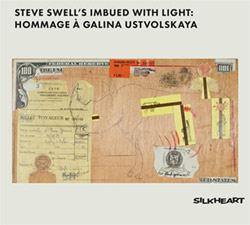
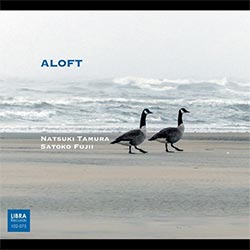
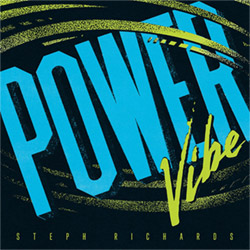
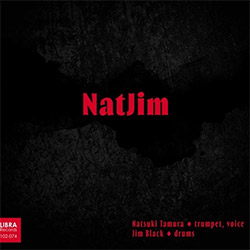
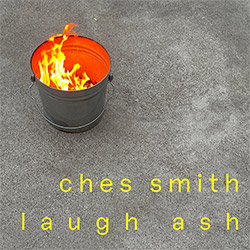


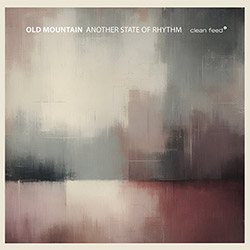



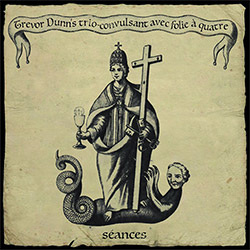
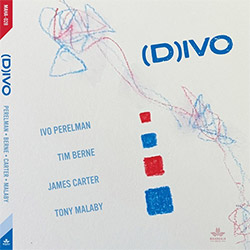
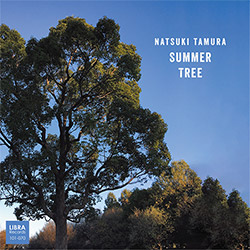
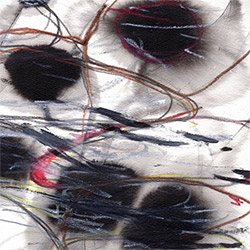

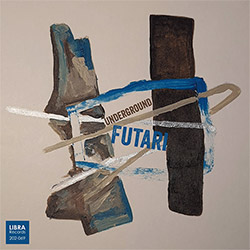











![Deupree, Jerome / Sylvie Courvoisier / Lester St. Louis / Joe Morris: Canyon [2 CDs]](https://www.teuthida.com/productImages/misc4/36404.jpg)


![Eternities: Rides Again [CASSETTE]](https://www.teuthida.com/productImages/misc4/36247.jpg)

![Lopez, Francisco: Untitled (2021-2022) [2 CDs]](https://www.teuthida.com/productImages/misc4/36438.jpg)




![Eventless Plot | Haarvol: The Subliminal Paths [CASSETTE + DOWNLOAD]](https://www.teuthida.com/productImages/misc4/36232.jpg)












![Eventless Plot | Francesco Covarino: Methexis [CASSETTE + DOWNLOAD]](https://www.teuthida.com/productImages/misc4/36231.jpg)



![Das B (Mazen Kerbaj / Mike Majkowski / Magda Mayas / Tony Buck): Love [VINYL]](https://www.teuthida.com/productImages/misc4/36329.jpg)



![Hemphill Stringtet, The: Plays the Music of Julius Hemphill [VINYL]](https://www.teuthida.com/productImages/misc4/36409.jpg)



![Halvorson, Mary Septet: Illusionary Sea [2 LPS]](https://www.teuthida.com/productImages/misc4/17952.jpg)






![Money : Money 2 [2 CDs]](https://www.teuthida.com/productImages/misc4/35894.jpg)




![Klinga, Erik: Elusive Shimmer [VINYL]](https://www.teuthida.com/productImages/misc4/36258.jpg)
![CHANGES TO blind (Phil Zampino): Volume 9 - I Wave on a Fine Vile Mist [CD + DOWNLOAD]](https://www.teuthida.com/productImages/misc4/36061.jpg)

![Wallmart / Rubbish: Asset Protection [split CD]](https://www.teuthida.com/productImages/misc4/35900.jpg)


![+Dog+: The Family Music Book Vol. 5 [2 CDs]](https://www.teuthida.com/productImages/misc4/35897.jpg)
![Kuvveti, Deli : Kuslar Soyledi [CASSETTE w/ DOWNLOAD]](https://www.teuthida.com/productImages/misc4/36107.jpg)

![Nakayama, Tetsuya: Edo Wan [CASSETTE w/ DOWNLOAD]](https://www.teuthida.com/productImages/misc4/36105.jpg)




![Yiyuan, Liang / Li Daiguo: Sonic Talismans [VINYL]](https://www.teuthida.com/productImages/misc4/35957.jpg)
![Brown, Dan / Dan Reynolds: Live At The Grange Hall [unauthorized][CASSETTE]](https://www.teuthida.com/productImages/misc4/36245.jpg)








![Palestine, Charlemagne / Seppe Gebruers: Beyondddddd The Notessssss [VINYL]](https://www.teuthida.com/productImages/misc4/36206.jpg)
![Palestine, Charlemagne / Seppe Gebruers: Beyondddddd The Notessssss [NEON GREEN VINYL]](https://www.teuthida.com/productImages/misc4/36207.jpg)

![Laubrock, Ingrid: Purposing The Air [2 CDs]](https://www.teuthida.com/productImages/misc4/35639.jpg)

![Yoko, Ono / The Great Learning Orchestra: Selected Recordings From Grapefruit [2 CDs]](https://www.teuthida.com/productImages/misc4/35841.jpg)









![Zorn, John / JACK Quartet: The Complete String Quartets [2 CDs]](https://www.teuthida.com/productImages/misc4/35609.jpg)

![Lonsdale, Eden: Dawnings [2 CDs]](https://www.teuthida.com/productImages/misc4/35480.jpg)



![Sorry For Laughing (G. Whitlow / M. Bates / Dave-Id / E. Ka-Spel): Rain Flowers [2 CDS]](https://www.teuthida.com/productImages/misc4/35985.jpg)

![Rolando, Tommaso / Andy Moor : Biscotti [CASSETTE w/ DOWNLOADS]](https://www.teuthida.com/productImages/misc4/36106.jpg)


![Electric Bird Noise / Derek Roddy: 8-10-22 [CD EP]](https://www.teuthida.com/productImages/misc4/35970.jpg)







![Elephant9 : Mythical River [VINYL]](https://www.teuthida.com/productImages/misc4/34624.jpg)



![Elephant9 with Terje Rypdal: Catching Fire [VINYL 2 LPs]](https://www.teuthida.com/productImages/misc4/35355.jpg)
![Deerlady (Obomsawin, Mali / Magdalena Abrego): Greatest Hits [VINYL]](https://www.teuthida.com/productImages/misc4/34876.jpg)







![Surplus 1980: Illusion of Consistency [CD]](https://www.teuthida.com/productImages/misc4/35069.jpg)
![Staiano, Moe: Away Towards the Light [VINYL + DOWNLOAD]](https://www.teuthida.com/productImages/misc4/35037.jpg)
![Coley, Byron: Dating Tips for Touring Bands [VINYL]](https://www.teuthida.com/productImages/misc4/17906.jpg)

![Lost Kisses: My Life is Sad & Funny [DVD]](https://www.teuthida.com/productImages/misc4/lostKissesDVD.jpg)